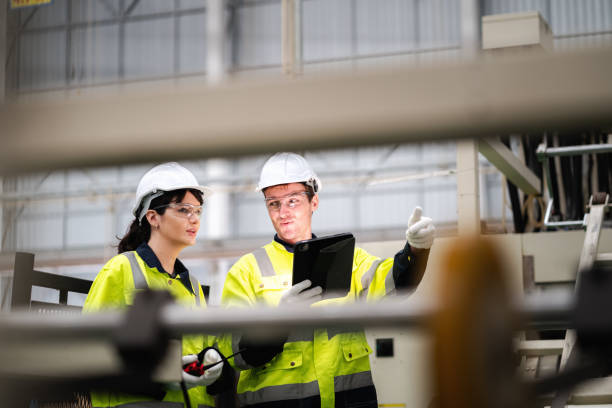While most escape rooms accommodate larger teams, the exhilarating thrill of a two-person escape room offers an unparalleled experience of camaraderie and intellectual rapport. As the timer starts in your intimate two-person cell, you and your partner exchange glances, sensing the challenge ahead. But with laser focus, strategic thinking, and seamless teamwork, you both plunge into solving escape room Wanneroo puzzles against the ticking clock.
Choose Your Two-Person Adventure
With hundreds of exciting themes to choose from, selecting the right two-person escape room is critical. Consult game masters for guidance; some rooms better suit pairs while others require more participants. Rooms with elaborate sets or physically intensive tasks often overwhelm duos, so opt for intimate spaces focused on intellectual riddles over those demanding brute force. While two heads are often better than one, consider booking shorter rooms, around 45 minutes, since solving multifaceted puzzles with limited manpower requires efficiency.
Divide the Clues
Once locked inside your two-person chamber, quickly scan the space to divide and conquer clue-rich areas matching individual strengths. Just as superheroes combine complementary powers against villains, fuse your respective talents to form a dynamic escape room duo. For example, detail-oriented types might decode cryptic writings, while big-picture thinkers view environments more holistically to identify pattern connections. Leverage this specialization by allocating tasks into zones: puzzles, furnishings, structures and so on. But balance autonomy with frequent check-ins, reviewing insights collectively before pursuing solutions independently. Consistent communication clarifies progress, exposing blindspots that collaboration can remedy.
Crack the Code as a Cohesive Unit
While separately gathering and interpreting clues, also co-mingle ideas regularly. Even seemingly irrelevant discoveries somewhere may trigger revelations elsewhere for your partner, so perpetually bounce new learnings off one other to unlock epiphanies. Think of yourselves as two interconnected appendages of one mind, flowing ideas seamlessly between shared consciousness. Also capitalize on intuition, verbally sketching embryonic concepts which feel promising but lack definition. Float multiple hypotheses on connections between clues, testing preliminary assumptions aloud to identify logical gaps that further brainstorming can fill. Through this interplay of flexible thinking coupled with accountability in reasoning, escape room novices can achieve veteran-level mastery.
Squeeze out Every Second
With limited labourers against the clock, punctuality is paramount when seeking escape with just two. Abandon any clues proving recalcitrant after ~3 minutes and pivot to more promising pathways forward. If stumped during a multilayer puzzle, solve components simultaneously; when obstacles arise in one thread, productivity persists on parallel conduits. And remember that escape rooms allow hints, so swallow pride and request assistance before frustration drains irreplaceable minutes. With no room for redundancy between partners, utilize every tick of the clock judiciously through flexibility in shifting strategies plus an ability to recognize and rebound promptly from unproductive tangents.
Triumph Through Trust
While relying heavily on one’s partner breeds reliance, avoid blind obedience by ensuring inclusion and self-reliance. Seek confirmation when deductions seem tenuous, but also provide respectful counterpoints to avoid groupthink vulnerabilities hidden in harmony. Achieve a balance between confidence in your combined capabilities and humility regarding personal limitations. Most importantly, dismiss fears of judgment that stifle creativity by fostering psychological safety to brainstorm freely. Frame wild what-if ideas as conversation starters rather than finished concepts. The goal is to unearth possibilities, not polish flawless theories. This environment of unconditional support combs an exponentially wider solution space than individual efforts alone. Escape rooms demonstrate that when two minds intensely unite, no puzzle proves too imposing, nor is any lock impregnable. Trust in tandem triumphs.
Conclusion
While most escape rooms for 2 people experiences cater to larger teams, groups of two can also discover immense rewards from these mental escapades. However, achieving victory with such limited resources demands diligence in preparation, efficiency in undertaking tasks, and cohesion when collaborating under duress. Partners must identify compatible escape rooms for dual participants to avoid scenarios requiring more physical elements or a wider breadth of knowledge. Strategic division of labour also plays a pivotal role, assigning complementary duties based on respective aptitudes such as topics or spatial zones.
Regardless of responsibilities, continual communication of discoveries remains vital to help conjure epiphanies across clues. Partners should also alternate leadership gently to avoid dominance by one voice, which risks overlooking alternative theories. Within environments, psychologically safe for imaginative ideas to flow freely, teams of two can unlock their full potential to overcome imposing escape room adventures against seemingly impossible odds. While needing more sweat and synergy than larger teams, pairs who prepare properly position themselves to be giant slayers.
FAQs
Q: Should we choose physical escape rooms or more cerebral options for a two-person team?
A: Lean towards brainy games with puzzle-solving over highly physical activities requiring more bodies. Optimal two-person escape rooms have compact floorplans packed densely with mental mysteries.
Q: If we feel completely stuck, should we keep guessing or ask for hints?
A: Don’t spend over 3 minutes fixated when stumped. Request hints to calibrate your thinking, ensure you’re not overlooking clues and to prevent wasted time from depleting morale.
Q: What’s the best way to delegate roles on a coordinated two-person team?
A: Categorize room zones based on features like furnishings, structures, textures, technologies etc., playing to each individual’s strengths across domains. Frequently trade insights.
Q: Is it better to solve components together or separately in a two-person escape room?
A: Balance autonomy in gathering observations with collaboration interpreting findings. Isolate insights individually first before reconvening to leverage diverse perspectives.
Q: How can we best apply lessons from a two-person escape room experience to workplace teamwork?
A: Institute psychological safety so colleagues can imagination flow freely regardless of experience levels. Frame experimental ideas as dialogue starters. Also nurture compassion for limitations in order to learn from mistakes.






